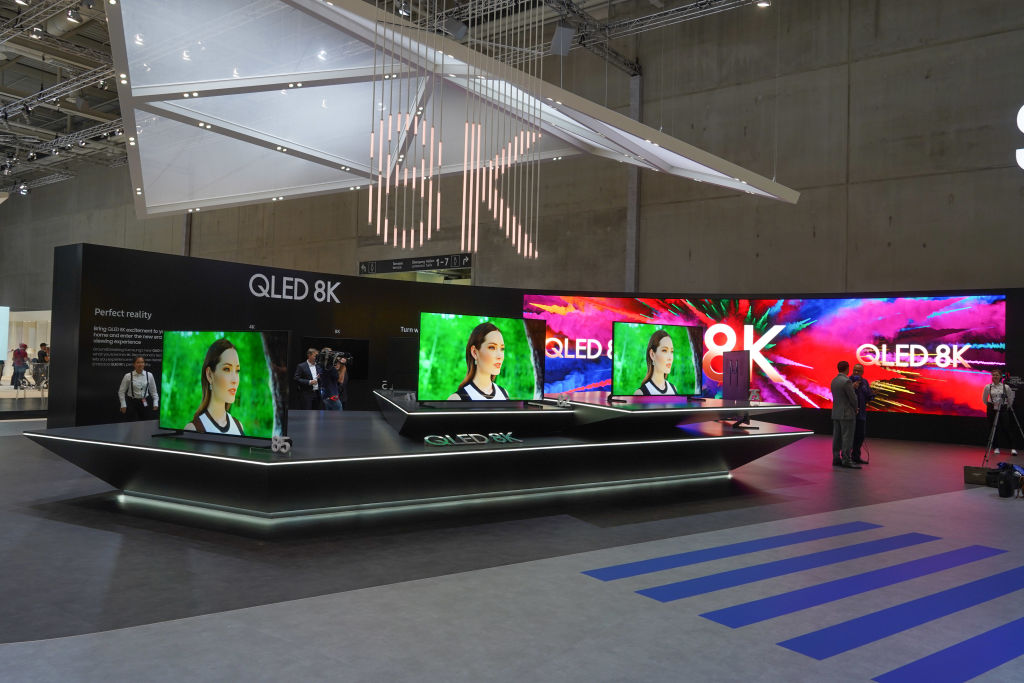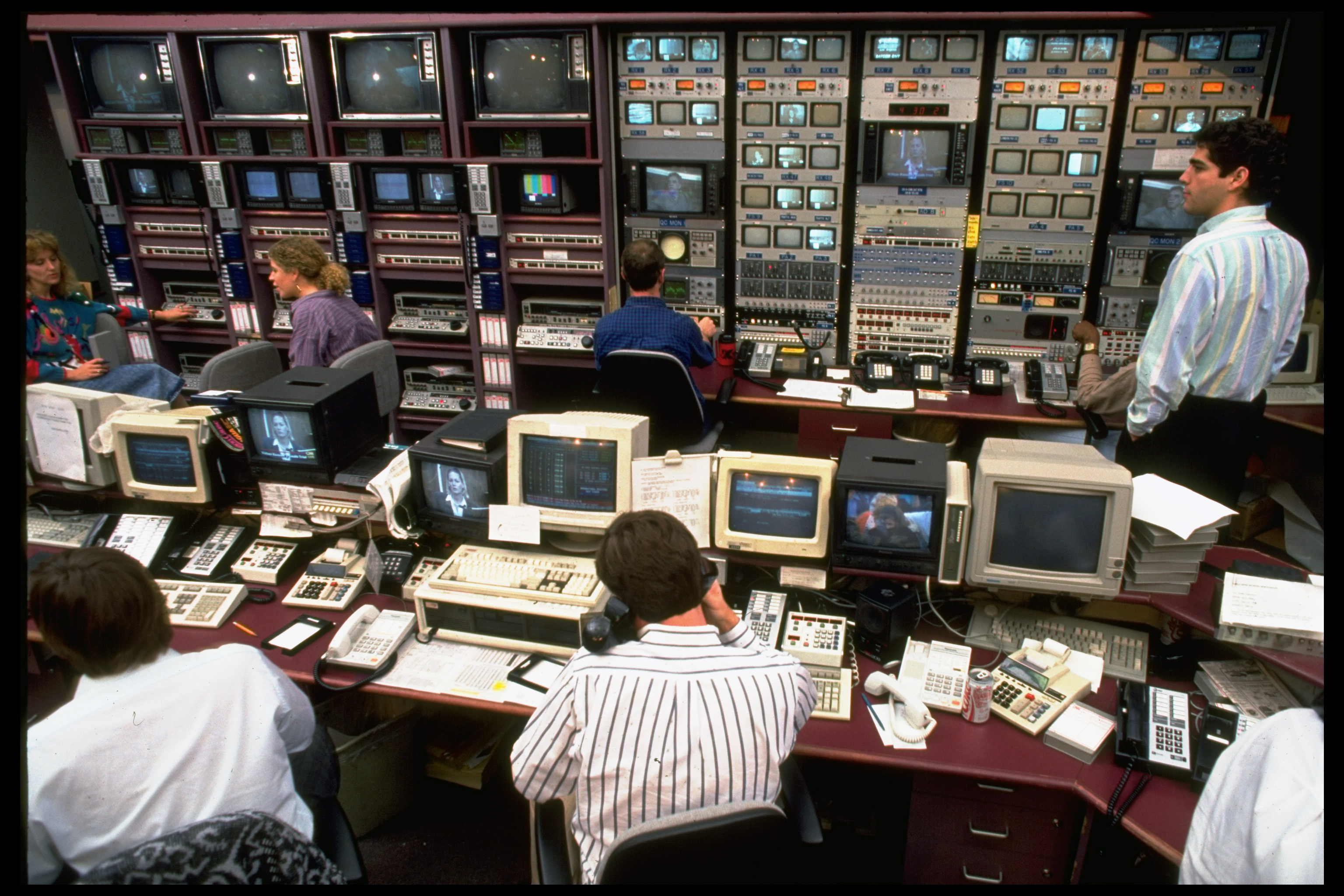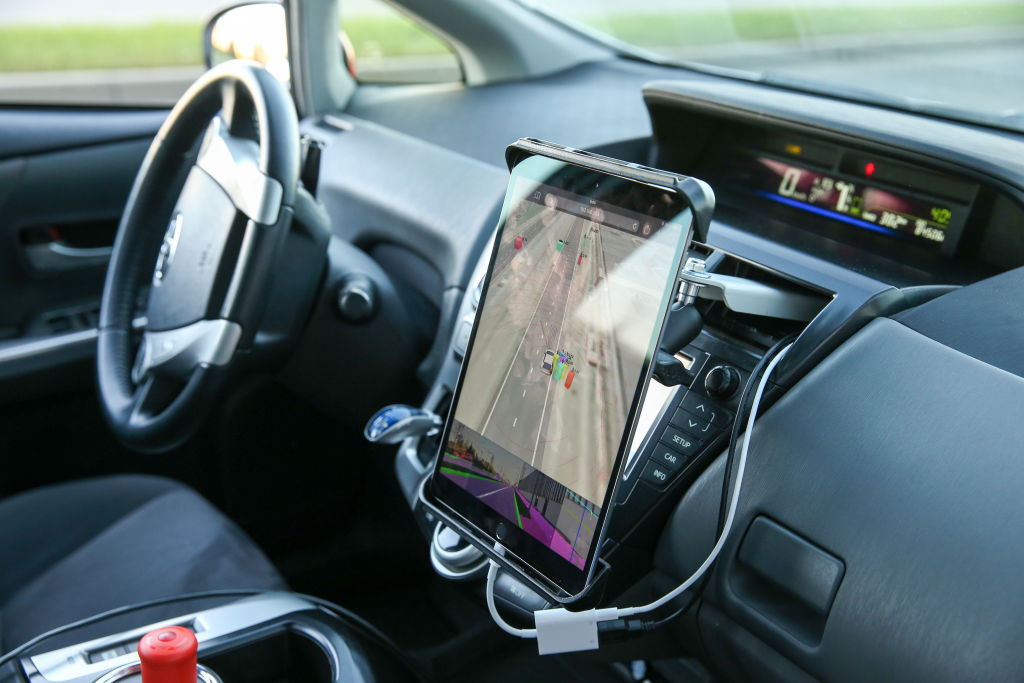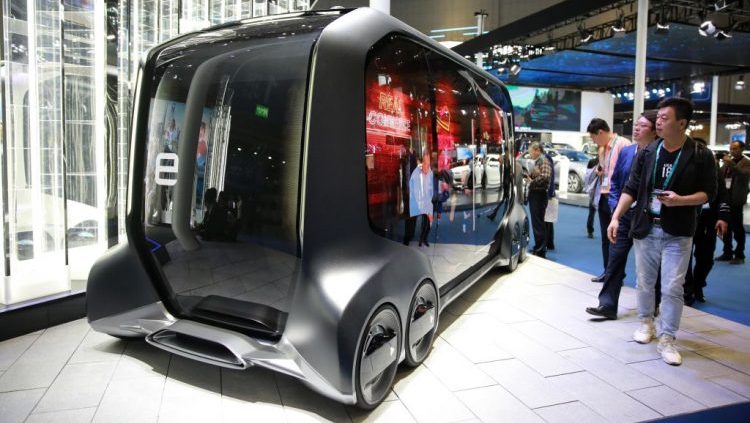Photo: VCG / Contributor (Getty Images)
It’s a brand new year, and the ever-progressing world of tech trends marches on. Although 2018 brought us the wonders of Fortnite, the continued success of the Nintendo Switch and dual screen cell phones, we have to imagine that this year will bring more innovative, mind-blowing and sometimes questionable new gear. The question is out there: What surprises will 2019 bring?
We have a brief window into what big tech companies are thinking, thanks to CES just around the corner. From faster phones to big, bending new TVs, tech in 2019 is looking to give us more of what we probably don’t need more of. Fantastic!
Technology perks: More Road Sex Is In Your Future Thanks To Self-Driving Cars
Some of the new trends will change your life, others will marginally move the marker of convenience a little further. Before long, we won’t have to lift a finger. In any case, it’s all happening, whether you’re ready or not. Join us for a glimpse into the future of tech. Here are seven trends to watch out for as you journey into the end of technology’s biggest decade yet.
Future tech: Microsoft Brings HoloLens to the Battlefield for U.S. Army
Follow Mandatory on Facebook, Twitter, and Instagram.
2019 Tech Trends
-
5G Networking

Of all the wonders of the modern world, it's sometimes the things we take for granted that are the most amazing. Consider 4G Internet. Most of us use it every day on our phone and it just works. It's less reliable than WiFi, but it streams video consistently and keeps our phones running well.
Now, consider the same tech, only supercharged. That's 5G, and it's going to take its first steps towards reality in 2019. When fully up and running, it will operate at speeds ranging from 20 to 100 times faster than the current 4G.
That impressive leap opens the door to always-online devices beyond just cell phones. If you're old enough to remember the jump from dial-up to broadband, you know just how exciting this prospect can be.
Photo: Miquel Llop/NurPhoto (Getty Images)
-
8K TVs

OK, 8K TVs aren't that much of a leap compared to 5G networks. Heck, most of us are just starting to build a library of UHD movies to watch on our 4K sets. However, that's not going to stop screen manufacturers from getting their new product out there.
8K TVs will be a huge part of the upcoming CES show, and the tech will start to trickle out to consumers in 2019. Considering that the way we get our media has changed so much since the HD to 4K days, it might be a quicker transition than that.
However, games are a bigger part of today's tech sphere, and that might just delay things further. While it's possible that the next generation of consoles will support 8K, 4K is still an optional feature in many games, and bumping up the resolution again would be disastrous for many developers.
Photo: Jörg Carstensen/picture alliance (Getty Images)
-
Augmented Reality

The whole VR/AR/XR category hasn't really taken off in the ways that device makers would hope. Still, it hasn't been a total loss. From PlayStation VR's resurgence this past holiday to the continued way that AR is sneaking into our lives, 2019 looks to be a year of growth for virtual worlds.
Augmented Reality might not be in any products you buy this year, but it's finding new markets in more professional settings. Enterprise workers are starting to use AR goggles during their workday, and AR forms a big part of the heads-up display being created for the smart cars of the future. It's not as exciting as Pokemon GO, but 2019 will see companies integrate the tech behind the scenes and right in front of us.
Photo: Justin Sullivan (Getty Images)
-
Software Dark Mode

After years of back and forth among web users, it seems like Dark Mode is finally winning out. Dark Mode uses black as a default background color instead of white, leading to less bright screens that were originally designed for nighttime viewing.
Already in early 2019, we've seen Windows 10 integrate dark mode into their default web browser and the OS itself. Other programs, like image editor GIMP and Firefox, are making changes to align with Windows' new dark mode setting.
Not only does Dark Mode save energy by displaying black instead of white on the majority of the screen, but it's also easier to look at. Here's to the rest of the Internet shifting over to the superior spectrum. It's not just a night thing, it's an all the time thing, and our eyes are thankful.
Photo: Matt Cardy (Getty Images)
-
The Death of Cable

This may be one of the last years we'll tune into CNN, Animal Planet, and VH1, at least in their current incarnations. More and more, TV viewers are shifting over to services rather than dedicated networks for their content. Whether it's Netflix, Hulu, Twitch, or even CBS All Access, customers want on-demand content at all hours of the day. A 24/7 schedule just doesn't fit with that.
Some networks will probably make the transition without much problem, as they have the content that you need to survive on your own. Any network without original shows will probably not be so lucky unless they bundle their services with those of their sister networks. Either way, you may be losing the cable bill, but you may have to subscribe to more than Netflix to get your TV fix.
Photo: Ted Thai/The LIFE Images Collection (Getty Images)
-
Cloud Storage

If 2019 is going to be the year that 5G becomes a thing, it only makes sense that it's also a year where cloud storage takes the next leap forward. If you're dealing with users with much faster connections on-the-go, cloud storage becomes that much more important.
Phones and most other devices using faster networks won't have a lot of internal storage. That means that cloud solutions will need to ramp up to meet demand, especially on a connection that can pull down a full movie-sized file in seconds. This level of speed will also open up high-fidelity streaming to portable devices as well as more robust online gaming. All these require server farms and the companies that can jump on those opportunities will benefit greatly.
Photo: Jaap Arriens/NurPhoto (Getty Images)
-
Self-Driving Cars

In 2019, we will finally see self-driving cars stretch out past Silicon Valley and into everyday lives. Companies like Uber and Waymo are already posed to offer transport services, it's just a matter of scaling up to the rest of the country.
While this means fewer jobs for Uber drivers out there, it's will be a societal shift for transportation in general. This year will be the start of a time when you may not have to buy a car to get around town. You may just rent a vehicle when you need it or just jump into cycling as transportation in cities.
With the average person having more mobility thanks to robots on wheels, there will be fewer people pushed out of the workforce. Shut-ins can more easily make the social connections they need to thrive. Best of all, more automatic cars mean fewer cars on the road at once and more room for parking when you do end up driving. It's a win/win that we'll all start self-actualizing this year.
Photo: Alexander Ryumin / Contributor (Getty Images)






